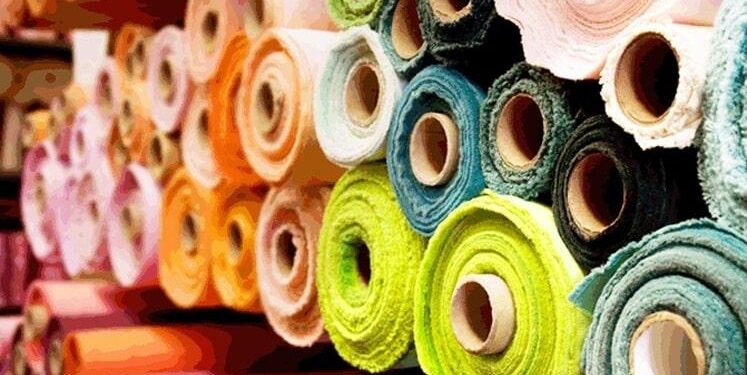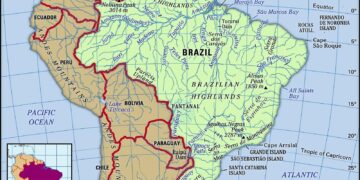Title: Unraveling Nigeria’s Textile Decline: The Surge of Chinese Imports and Its Impact
Nigeria’s textile industry, once a beacon of economic vitality and cultural richness, has undergone a profound transformation over recent decades. Celebrated for its vibrant fabrics and skilled artisanship, the sector now faces significant challenges as an overwhelming influx of affordable Chinese textiles has reshaped consumer habits and market dynamics. This article explores the multifaceted causes behind Nigeria’s diminishing textile market share, highlighting the roles of trade policies, globalization trends, and evolving buyer preferences. We also consider the broader implications for local economies and cultural identity amid today’s deeply interconnected global landscape.
Nigeria’s Textile Industry: From Flourishing Roots to Global Pressures
Historically, Nigeria’s textile sector was a cornerstone of employment and regional development. However, since the early 2000s, it has experienced a steep decline largely due to competition from low-cost imports flooding in from China. These foreign products attracted consumers with their affordability and diverse designs—advantages that local producers struggled to match given their reliance on traditional methods.
Several critical elements accelerated this downturn:
- Trade Policies Favoring Imports: Nigerian regulations often made it easier for cheaper foreign textiles to enter the market than for domestic goods to compete effectively.
- Technological Gaps: Local manufacturers frequently lacked access to modern machinery necessary for efficient production at scale.
- Consumer Perceptions: Imported textiles gained favor due to perceived higher quality or trendier styles compared with locally produced fabrics.
In response, government initiatives have aimed at revitalizing domestic manufacturing through industrial parks development and incentives targeting small-scale textile enterprises. While these efforts show promise in theory, their long-term success remains uncertain within an increasingly competitive international economy.
Hurdles Confronting Nigerian Textile Makers Amid Rising Chinese Competition
Local producers face numerous obstacles that undermine their ability to compete both domestically and abroad:
- Escalating Production Expenses: High costs related to raw materials procurement, energy supply disruptions, and inadequate infrastructure inflate operational budgets.
- Difficulties Accessing Capital: Many small-to-medium enterprises (SMEs) encounter barriers securing loans or investment needed for innovation or expansion.
- Aging Equipment: Outdated machinery limits productivity levels as well as product quality consistency.
Consequently, Nigerian manufacturers’ share in the national textile market continues shrinking as consumers increasingly opt for cheaper alternatives imported from China. This shift has triggered several adverse effects:
- Shrinking Employment Opportunities: Factory shutdowns have led thousands of workers into unemployment across key industrial hubs like Lagos and Kano.
- Erosion of Economic Independence:The decline in homegrown production weakens local economies by reducing reinvestment potential within communities reliant on textiles.
- Deterioration in Product Standards:Certain imported goods prioritize cost-cutting over durability or craftsmanship—raising concerns about long-term value among discerning buyers.
Reviving Nigeria’s Textile Industry: Strategic Approaches Toward Recovery
Rebuilding Nigeria’s textile sector demands comprehensive strategies focused on modernization alongside cultural preservation:
An essential first step involves upgrading manufacturing technology by integrating automated looms or digital design tools that enhance efficiency while maintaining artisanal qualities unique to Nigerian fabrics. Partnerships between universities specializing in material sciences—such as Ahmadu Bello University—and industry players can foster innovation around sustainable fibers suited for both local use and export markets.
The government should bolster these efforts through targeted fiscal incentives including tax reliefs or grants designed specifically for SMEs investing in new equipment or research initiatives.
A renewed emphasis on sourcing indigenous raw materials like locally grown cotton can stimulate rural economies while reducing dependency on costly imports used during production phases.
Nurturing skilled labor via vocational training programs will equip workers with competencies aligned with international standards—a vital factor when competing globally.
A robust branding campaign is equally crucial; promoting “Made-in-Nigeria” labels that celebrate heritage craftsmanship combined with eco-friendly certifications could attract environmentally conscious consumers worldwide seeking authentic yet sustainable fashion choices.
Looking Ahead: Navigating Challenges Toward a Resilient Textile Future
The displacement of Nigeria’s once-thriving textile industry by inexpensive Chinese imports extends beyond mere economic loss—it threatens livelihoods tied closely to this historic craft while dampening entrepreneurial momentum within affected communities. Addressing this complex issue requires collaborative dialogue among policymakers crafting trade frameworks; business leaders driving innovation; artisans preserving tradition; plus financial institutions enabling growth.
Balancing protectionist measures with openness toward global commerce will be key if Nigeria hopes not only to reclaim but also sustain its position within international markets moving forward. Though recovery may be gradual amid fierce competition worldwide—the combination of strategic investment decisions coupled with leveraging indigenous strengths offers hope that Nigeria can weave together a prosperous future where its rich fabric heritage endures alongside modern advancements.















